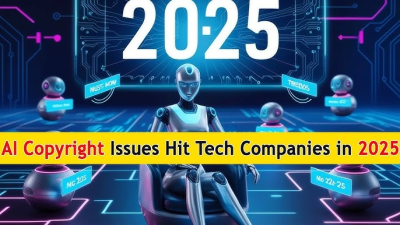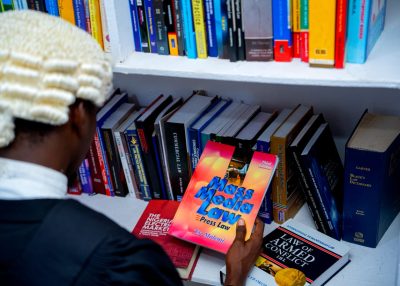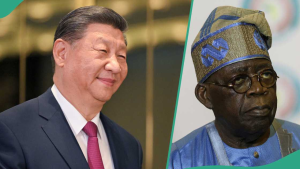The legal landscape surrounding artificial intelligence (AI) and copyright law is poised for significant evolution in 2025, as courts begin addressing a series of lawsuits that could redefine how AI companies operate.
These cases, brought by a variety of plaintiffs—including authors, news outlets, visual artists, and musicians—accuse major AI players like OpenAI, Anthropic, and Meta Platforms of using copyrighted material without permission or compensation to train AI systems.
Central to these disputes is whether such use constitutes “fair use,” a doctrine that allows limited use of copyrighted material under certain circumstances without needing permission from the copyright holder.

Copyright :The Stakes of the Fair Use Debate
AI companies argue that analyzing copyrighted material to develop new and transformative content qualifies as fair use. They claim this practice is essential for innovation and the continued growth of the U.S. AI industry.
On the other hand, copyright holders argue that this approach unlawfully appropriates their work, enabling the generation of content that competes directly with the original creators, thereby threatening their livelihoods.
This debate carries significant implications. A ruling against AI companies could force them to negotiate costly licensing agreements with copyright holders, potentially stalling advancements in the field. Conversely, a decision in favor of AI firms on fair use grounds could exempt them from liability, reinforcing their ability to use vast amounts of data for training purposes.
Copyright : Key Cases to Watch
Several pivotal lawsuits are expected to test the boundaries of fair use in the AI context:
- Thomson Reuters vs. Ross Intelligence
Thomson Reuters has accused Ross Intelligence of misusing copyrighted material from its Westlaw legal research platform to develop an AI-powered legal search engine. While U.S. Circuit Judge Stephanos Bibas initially allowed the case to proceed to trial, he later heard fresh arguments on fair use in November 2024. His forthcoming decision could set an early precedent. - Music Publishers vs. Anthropic
Music publishers have taken issue with Anthropic’s use of song lyrics to train its chatbot, Claude. U.S. District Judge Jacqueline Corley is considering the fair use argument as part of a motion for a preliminary injunction. Her ruling could provide another early signal about how courts will approach the issue. - Raw Story and AlterNet vs. OpenAI
A distinct lawsuit from news outlets Raw Story and AlterNet accused OpenAI of removing copyright management information from their articles rather than direct infringement. U.S. District Judge Colleen McMahon dismissed the case in late 2024, finding no demonstrable harm to the plaintiffs. This outcome suggests that some cases could end without addressing the core fair use question if harm is not established.
Mixed Outcomes and Uncertainty
Judges across jurisdictions could issue conflicting rulings on fair use, leading to a fragmented legal landscape. Multiple appeals are expected, potentially elevating some of these cases to higher courts for definitive rulings.

This uncertainty underscores the importance of these early cases, as they will influence how courts interpret the balance between innovation and copyright protection.
Voluntary Licensing: A Parallel Trend
Amid these legal battles, some copyright holders have opted to negotiate licensing agreements with AI companies. For example, Reddit, News Corp, and the Financial Times have begun licensing their material, recognizing an opportunity to monetize their content in the evolving AI ecosystem.
However, major stakeholders like record labels, the New York Times, and bestselling authors continue to pursue litigation, reflecting the broader tension between copyright holders and the AI industry.
The Road Ahead
As these cases progress in 2025, the outcomes will likely shape the future of AI development and its interaction with copyright law.
The decisions will determine whether AI companies must significantly alter their practices or if they can continue leveraging vast datasets under the protection of fair use. Either way, the results will have profound implications for both the technology and creative industries.









